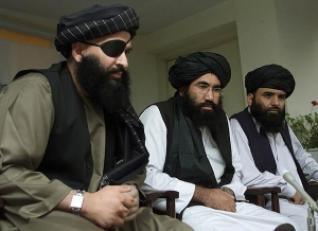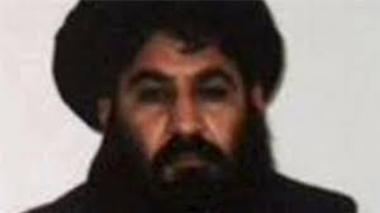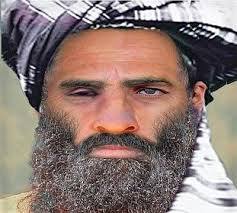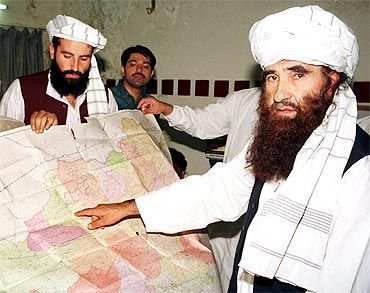Mullah Mansoor - in
Mullah Omar - out
The first consequence of the confirmation of Mullah Omar's death was the postponement of the second round of face to face meetings between the Taliban and the Government of Islamic Republic of Afghanistan (GIRoA). This round was scheduled to take place near Islamabad, Pakistan on July 31. Although any negotiated settlement of differences between the Taliban and GIRoA faces a very tortuous path, Afghan president Ashraf Ghani has overplayed the importance of the nascent face to face meetings. The challenge now facing Mr. Ghani is to wait and identify the "right" Taliban leader with credibility and authority over the Quetta Shura (as the classic Taliban organization under Omar was known) willing and capable of sitting down for peace negotiations. Despite the increased uncertainty the Afghan officials have welcomed the new developments as an opportunity to move forward with the talks! The second consequence is the further fracturing of the Taliban movement politically, weakening the group, which on its face is good news. Theoretically a weakened Taliban may be more amenable to talks, but at the same time the splinter groups opposed to talks may increase their attacks. Additionally it will make the process of negotiation more difficult in the absence of a unified leadership speaking for all Taliban.
Since the cat is out of the bag, the Taliban are scurrying to keep the already fractious organization from further disarray. The number two Talib, Mullah Akhtar Mansoor, was quick to call for unity and became the de facto leader soon after the Quetta Shura declared him as Omar's successor. But other Taliban have announced that they will hold a shura (meeting) to discuss the selection of the new leader in the coming days. In his radio message following the confirmation of Omar's death, Mansoor urged the followers to continue the jihad and emphasized the importance of unity at this critical juncture. As the second in command during Omar's time, Mullah Mansoor has the experience to run the Taliban organization, but whether he will be able to fill in as the spiritual leader of the group remains to be seen. Some Talibs have suggested that Mullah Omar's son, Mullah Yacoob, is the rightful successor of his father. According to reports, he and a few of other high ranking Talibs walked out of the meeting during which Masoor was selected as the leader. Yacoob said that the selection of the next leader of the faithful should be considered by a more representative shura. Quetta Shura Members
Quetta Shura Members
The Taliban loyal to Mansoor selected as deputies Haibatullah Akhundzadah, a former head of Taliban's court and also the notorious terrorist, Serajdeen Haqani, the head of the Haqani group. The Haqani group with its close ties to Pakistan has been responsible for many brazen acts of terrorism throughout the years. Although originally part of the Taliban, the Haqani group has been operating independently mostly in eastern regions of Afghanistan. Serajudeen's selection as the deputy signals Mullah Mansoor's need for broader support. He needs this support in the face of opposition by the Omar's son and others who question his authority.
Haqani
The fallouts as a result of Mullah Omar's death have made an already fluid situation more turbulent. Who ultimately emerges as the undisputed Taliban leader, what his agenda will be, if the group splinters further and how Pakistan is going to play this game with its new twists shall affect the future of Afghanistan and the region.



